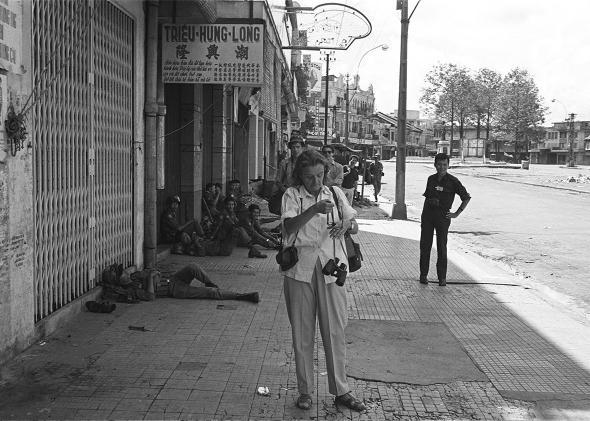Clare Hollingworth, who died Tuesday at 105, nabbed the “scoop of the century” in 1939 when she broke the news of the start of World War II as a 27-year-old cub reporter. Her swashbuckling career as a war and foreign correspondent spanned about as many continents as it did decades, and Hollingworth is remembered as much for her journalistic coups as she is for her antics and quips: She was accused of being a spy for both her native England and for other countries; she frequently slept in trenches and continued to occasionally sleep on the floor of her home into old age to keep from going soft; a few years ago, she told the Telegraph, which printed that first scoop, “I must admit that I enjoy being in a war.”
Readers in search of more war stories and old chestnuts from Hollingworth’s life will have no shortage of material to choose from: In addition to the New York Times, the Washington Post, the BBC, the Guardian, and others ran obituaries, and several journalists on Twitter are expressing their admiration for the career of a previously unknown-to-them boundary-breaking lady reporter. This outpouring isn’t surprising—of course journalists enjoy rollicking good stories of accomplished lives in journalism—but it is notable in light of how journalism has lately fallen in esteem in our culture at large (depending on who you ask, anyway). Journalism was already a profession in decline, in terms of economics, but 2016 saw an out-and-out attack on the press. Since the presidential election, the notion of fake news has dominated the national conversation, and much of the left has increasingly despaired that the Trump-led Republican Party simply doesn’t care about facts. As confirmation hearings for Trump’s Cabinet picks begin this week, Jeff Sessions, the nominee for attorney general, is publicly making no promises about whether journalists can expect to be jailed for doing their jobs under the Trump administration.
Clare Hollingworth was hailed as a hero for breaking the story that Germany was invading Poland. Today, would anyone believe her? Would half the world believe her and the other half ignore her? Would she even be able to get the scoop in the first place, when most news organizations don’t have foreign correspondents anymore? Journalists admire Clare Hollingworth, but no one gets to be Clare Hollingworth anymore. Barely anyone got to be like her the first time around, either: Hollingworth was one of only a few female war correspondents, and she spent much as her career toiling as a stringer, a situation that modern journalists will have a much easier time relating to. Still, her example is one that should be held up. Not content to be confined to an office or press pool, Hollingworth never stopped wanting to go where the action was. As the Post put it, “In her 60s, while on assignment covering the relatively staid doings of the British Defense Ministry, she was known to show up at the office with a bed roll and ask her editors, ‘Any foreign trips going? Any wars?’ ” Now there’s a woman who would turn her nose up at an off-the-record meeting with Donald Trump.
